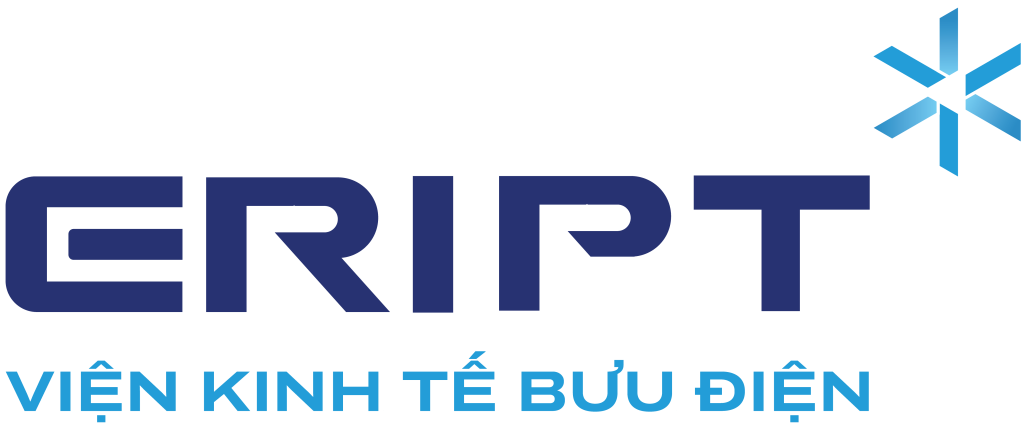| Program name:
Level of Education: Field of Study Mode of Education: |
Business Administration
Bachelor’s Business Administration Part-time (Work and Study) |
- TRAINING OBJECTIVES
- General Objective:
The Business Administration (BA) training program aims to equip students with the knowledge, skills, autonomy, and responsibility required to conceive, design, implement, and operate business processes.
- Specific Objectives: Graduates will be able to:
- Apply specialized and comprehensive knowledge to solve business problems (planning, organizing, and controlling business operations of enterprises);
- Apply corporate management knowledge to real-world business environments focusing on technology convergence and international trade;
- Utilize social and personal skills appropriate to their field of study to work independently and effectively in teams;
- Communicate in English and use information technology to explore, research, and apply scientific and technological advancements in the field of business administration.
- PROGRAM LEARNING OUTCOMES
2.1. Knowledge
General knowledge includes:
- Understanding and applying foundational knowledge of natural sciences, engineering, and technology in learning, research, and professional activities;
- Understanding and applying general knowledge of social sciences and humanities in learning, research, and professional activities;
- Analyzing and evaluating knowledge in economics and management relevant to the field and applying it in practice (e.g., basic principles of microeconomics and macroeconomics, market dynamics, and using quantitative methods to support business management decisions);
- Analyzing and evaluating knowledge in the field of business administration to address specialized issues in practice (e.g., applying basic management principles to propose business operation decisions, ensuring stable and developing human resources as per enterprise needs, implementing market-appropriate marketing activities, analyzing financial conditions and sources of capital, conducting basic financial management activities within enterprises, synthesizing environmental factors to identify business strategies);
- Analyzing and evaluating the operational mechanisms of an enterprise in reality (e.g., mapping organizational models and business functions, analyzing and evaluating components of business models, and developing and implementing business plans or projects).
Specialized Knowledge Includes:
(6.a) Corporate Management Specialization
(6.a.1) Analyze and evaluate the processes and general methods for operating business activities of an enterprise;
(6.a.2) Understand and apply knowledge of innovation, analyze mechanisms to create or utilize achievements, technical solutions, technology, and management solutions to improve the efficiency and effectiveness of enterprise operations;
(6.a.3) Understand and apply principles of planning, organizing, and controlling marketing activities, synthesize and evaluate decisions regarding market segmentation, target market selection, market positioning, and the use of marketing tools to influence the market;
(6.a.4) Develop business startup plans and enterprise restructuring plans;
(6.a.5) Understand and apply knowledge of international business activities.
(6.b) E-commerce Specialization
(6.b.1) Analyze and evaluate the processes and general methods for operating business activities of an enterprise;
(6.b.2) Understand and apply legal aspects of e-commerce and information security in enterprise business activities;
(6.b.3) Analyze and evaluate e-commerce systems and propose creative solutions for developing enterprise e-commerce systems;
(6.b.4) Analyze and evaluate online retail activities through enterprise websites, e-commerce platforms, or various social media platforms;
(6.b.5) Analyze and evaluate electronic transaction and payment systems with customers and suppliers;
(6.b.6) Understand and apply computer networks, commonly used enterprise management software, and popular e-commerce operational software.
(6.c) Logistics Specialization
(6.c.1) Analyze and evaluate the processes and general methods for operating business activities of an enterprise;
(6.c.2) Comprehend theories of logistics and supply chain management, grasp logistics development trends, and analyze factors affecting logistics and supply chain management decisions in organizations/enterprises;
(6.c.3) Understand and apply knowledge of freight forwarding, transportation, distribution centers, multimodal transport, and international payment;
(6.c.4) Understand and apply knowledge to develop plans, determine, and manage production and sales inventory of an enterprise;
(6.c.5) Understand and apply knowledge of procurement, customer management, and supply chain management in enterprises/organizations;
(6.c.6) Understand and apply knowledge to develop logistics systems and supply chains for various types of enterprises.
(6.d) Marketing Management Specialization
(6.d.1) Understand and apply knowledge to plan, organize, and control marketing activities such as market segmentation, target market selection, market positioning, and deploying marketing tools to influence the market;
(6.d.2) Understand and apply marketing activities in industrial/organizational markets (B2B marketing);
(6.d.3) Understand and apply marketing research programs aimed at understanding customer needs, markets, or measuring market responses to the enterprise’s marketing efforts;
(6.d.4) Understand and apply corporate marketing communication activities;
(6.d.5) Understand and apply digital marketing tools, and create electronic marketing plans for specific products and markets.
2.2. Skills
Professional skills in the field of Business Administration include:
(7) Proficiency in cognitive and problem-solving skills in the field of business administration (e.g., systems thinking, problem-solving, setting feasible goals, and making decisions in business management);
(8) Competence in professional practice in business administration (e.g., performing planning, organizing, leading, and controlling business activities; handling situations arising at the basic managerial level; collecting, analyzing, and processing information accurately using qualitative and quantitative methods).
Specialized skills by major include:
(9.a) Corporate Management Specialization: Ability to practice professionally in business administration, specifically: operating enterprise business systems, proposing mechanisms for innovation; Developing marketing plans and implementing parts of marketing activities in enterprises; Creating business plans, business startup plans, and enterprise restructuring plans.
(9.b) E-commerce Specialization: Ability to practice professionally in e-commerce, specifically: operating electronic business systems; Applying laws on e-commerce and information security in business; Drafting e-commerce system requirements and planning system development; Managing e-commerce application projects; Operating online retail systems through enterprise websites, e-commerce platforms, and popular social media platforms; Developing electronic transaction and payment systems; Using computer networks and employing enterprise management software and common e-commerce operational software.
(9.c) Logistics Management Specialization: Ability to practice professionally in logistics, such as: analyzing and evaluating enterprise production and business plans; Operating freight forwarding agents and customs declaration procedures; Performing import-export operations and international payments; Managing supply chains, multimodal transportation, inventory management, and warehouse operations; Managing logistics information systems; Starting businesses and designing logistics and supply chain models; Developing production and business plans and managing enterprises in the field of logistics and supply chain management.
(9.d) Marketing Management Specialization: Ability to practice professionally in marketing, specifically: conducting market research; Developing marketing strategies and programs; Implementing decisions related to products, pricing, distribution, and integrated promotional activities.
2.3. Soft Skills
(10) Proficient communication and presentation skills, demonstrated through clear, confident, and persuasive articulation of professional and socio-economic issues;
(11) Strong teamwork skills, including the ability to form and effectively organize group tasks;
(12) Personal skills and professional qualities in problem-solving, creative thinking, planning, and organizing work;
(13) A scientific and professional approach to work, systematic and analytical thinking, effective teamwork in interdisciplinary groups, and the ability to integrate into international work environments.
2.4. Autonomy and Responsibility
(14) Professional awareness, civic responsibility, proactivity, creativity, and collaboration in work;
(15) Ability to self-direct, adapt to different work environments, and engage in lifelong learning to enhance professional knowledge and skills;
(16) Initiative in performing assigned tasks, with the ability to draw conclusions on professional and technical matters;
(17) Capacity to plan, coordinate, leverage collective intelligence, and evaluate and improve professional activities.
2.5. Ethical Behavior
(18) High moral character, strong discipline, teamwork, and project-based work ethic, with a passion for science and continuous self-improvement in political and professional competencies;
(19) Awareness of ethical and professional values, contemporary issues, and the role of economic-technical solutions in global economic, environmental, and social contexts, as well as the country’s specific conditions;
(20) Recognition of the need for continuous learning, possessing the professional skills and language proficiency to pursue lifelong self-improvement.
2.6. Foreign Language (English)
(21) Achieve an international TOEIC score of 450 or equivalent;
(22) Ability to use English for learning, research, and quickly integrating into regional and international environments after graduation;
(23) Proficient use of English in professional activities related to their field of study.
2.7. Career Opportunities After Graduation
Graduates are qualified to undertake the following positions:
- Small and medium-sized enterprise manager; functional manager in companies (e.g., HR Manager, Marketing Manager, Business Manager in Commerce/E-commerce, Operations Manager, corresponding to their specialization);
- Mid-level or entry-level manager in HR, Marketing, Commerce/E-commerce, or Production departments;
- Civil servant or public employee in state management agencies;
- Entrepreneur or business founder.
Graduates may also pursue further studies at the postgraduate level in Business and Management at domestic or international institutions.
- DURATION OF TRAINING: 4.5 years
- TOTAL CREDIT LOAD FOR THE PROGRAM: 130 credits (excluding Physical Education, National Defense Education, and Soft Skills).
- ADMISSION REQUIREMENTS:
Candidates who meet one of the following criteria are eligible for admission:
- Graduated from a Vietnamese high school program (formal or continuing education) or a secondary vocational education program. Candidates who graduated from secondary vocational programs without a high school diploma must complete and pass the required high school cultural knowledge as stipulated by the Education Law and related guidelines;
- Graduated from a foreign high school program (recognized in its home country and equivalent to Vietnam’s high school education) either abroad or in Vietnam;
- Satisfy the annual admission requirements set by the Academy.
- TRAINING PROCESS AND GRADUATION REQUIREMENTS
6.1. Training Process:
The program spans 4.5 years and consists of 9 semesters. Students accumulate knowledge over 8 semesters at the Academy and spend 1 semester on practical internships. At the end of the program, students complete either a graduation thesis or alternative graduation replacement courses.
Training is conducted under the credit-based system in accordance with the current regulations on undergraduate credit-based education issued by the Ministry of Education and Training and the Academy.
6.2. Graduation Recognition:
Upon completion of the program, students will be awarded a Bachelor’s degree in Business Administration when they fulfill all the requirements as per the regulations on undergraduate credit-based education.
- GRADING SCALE: The program employs a credit-based grading scale.

